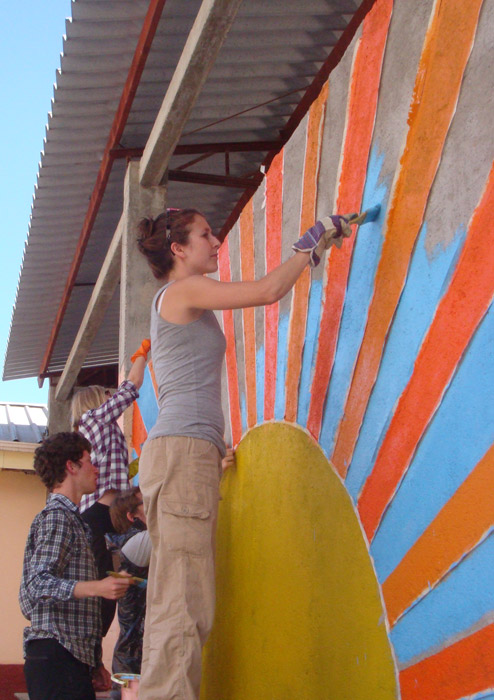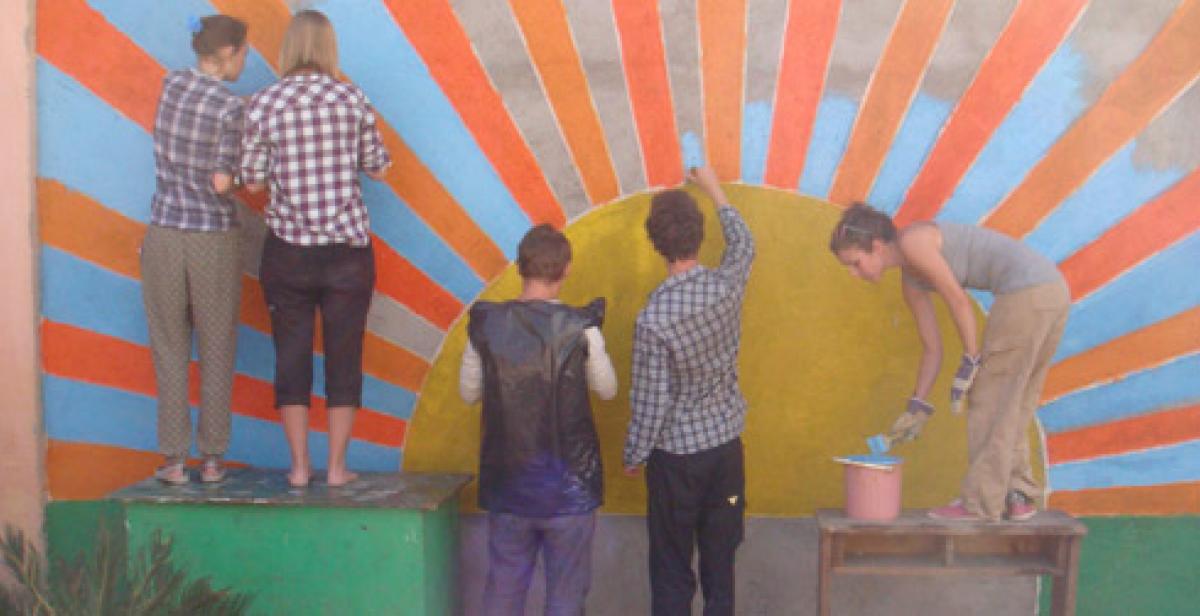Gender inequality is a major problem in Honduras and this week the group have been working on projects focused on promoting gender equality. Gender-based violence has been a long-term problem in Honduras, however it has escalated significantly in terms of numbers and brutality following the coup d'état in 2009. Merly Eguigure, a coordinator of the women’s movement Movimiento de Mujeres por la Paz Visitación Padilla has stated the following:
“Before the coup, women from our collectives were able to have regular meetings with the police to discuss the violence. Now they just laugh at us. Virtually all the mechanisms that women had to conduct their struggle have now been dismantled.”
In Honduras women are being killed at a rate of one a day and gender-based violence is now the second highest cause of death for women of a reproductive age. Despite these shocking facts little government intervention is taking place to deal with this escalating problem. Between 2008 and 2010 there were 1,110 reported cases of femicide, of which 211 went to court and a mere 4.2% resulted in conviction. In order to promote gender equality here in Marcala the group have begun work on a mural at Marco Aurelio School of a man and woman holding opposite ends of an intertwined gender sign. The mural is being painted by both volunteers and pupils in order to give the students a sense of ownership over the design. The team also delivered a lesson at the school this week on breaking gender stereotypes and activities involved role-play and bracelet making.

The COOMUPL volunteers have made significant progress on the domestic violence project this week. The responses from the questionnaires given to women in the municipalities of San Jose, Santa Elena and Marcala have been received and work has begun on translating and analysing the information. Many of the responses illustrate the severity of the problem of domestic violence in Honduras. A number of women have reported being subjected to psychological, physical and sexual abuse and have requested to receive trainings with regards to their rights and emotional support. The group hopes that the analysis of the questionnaires and the subsequent help provided will make a significant impact on the lives of women in these municipalities and are looking forward to completing the project in the coming weeks.
Progressio ICS volunteer Suki Bath blogs from Honduras
Photos taken by Progressio ICS volunteer Joanna Auburn



